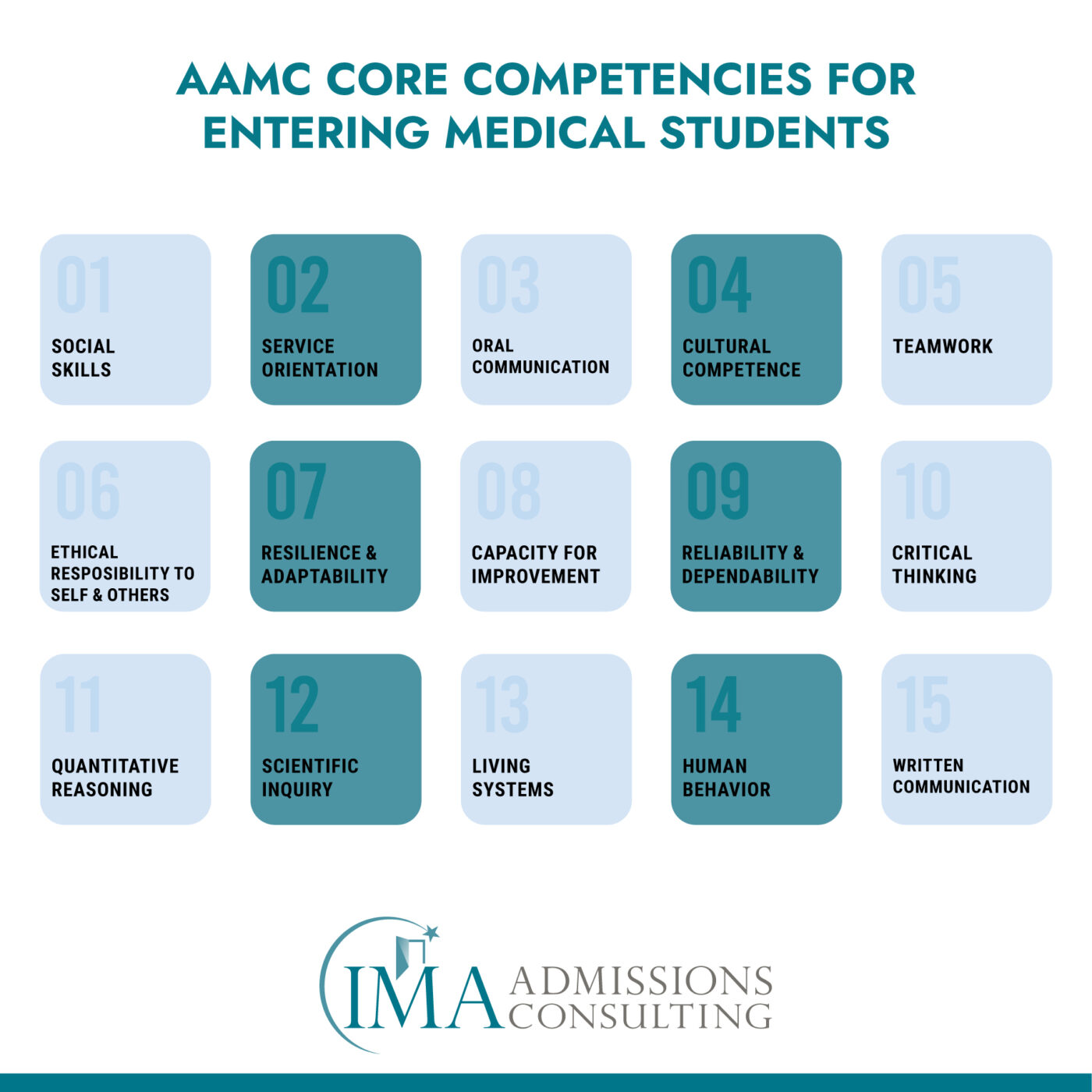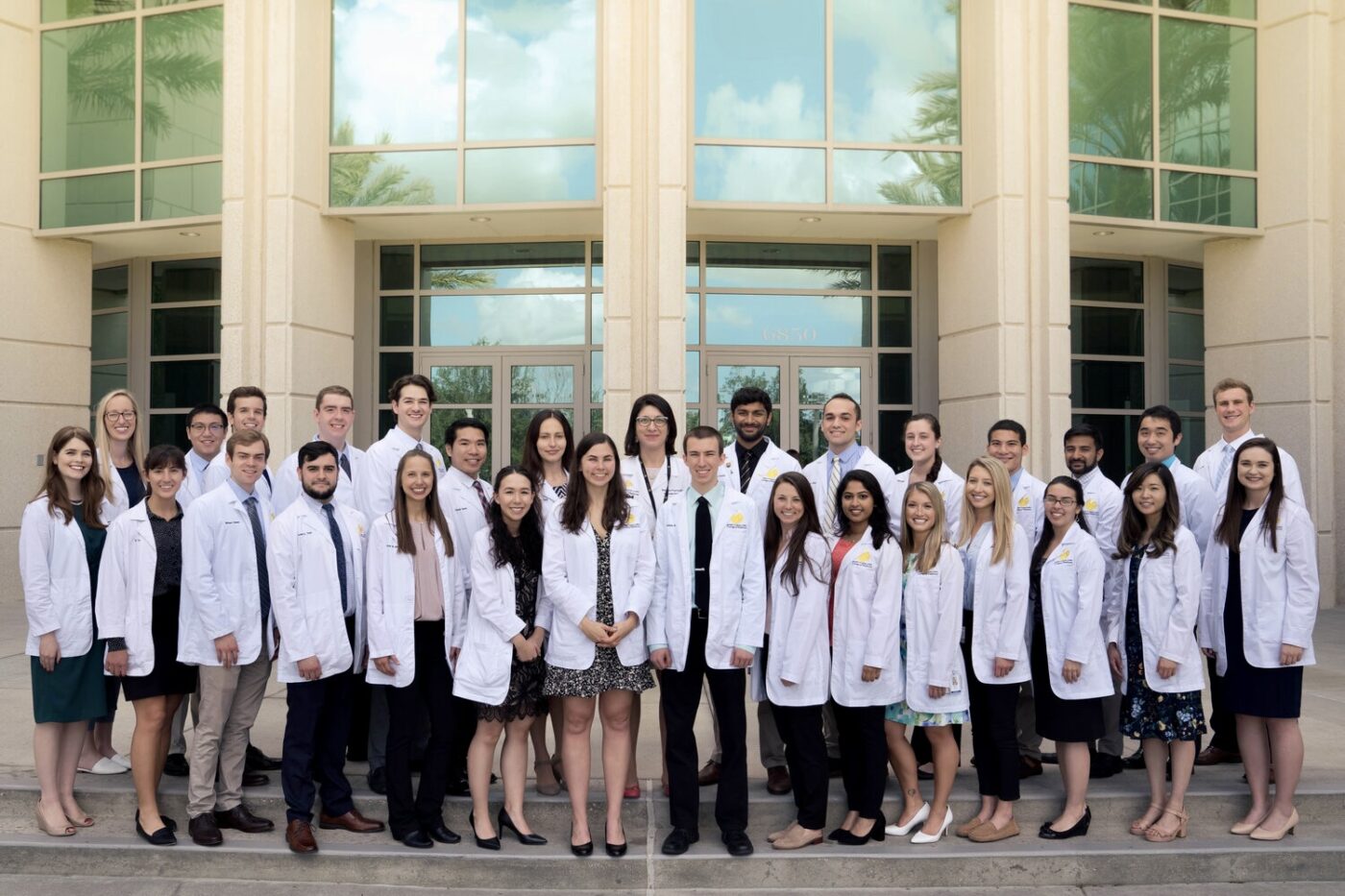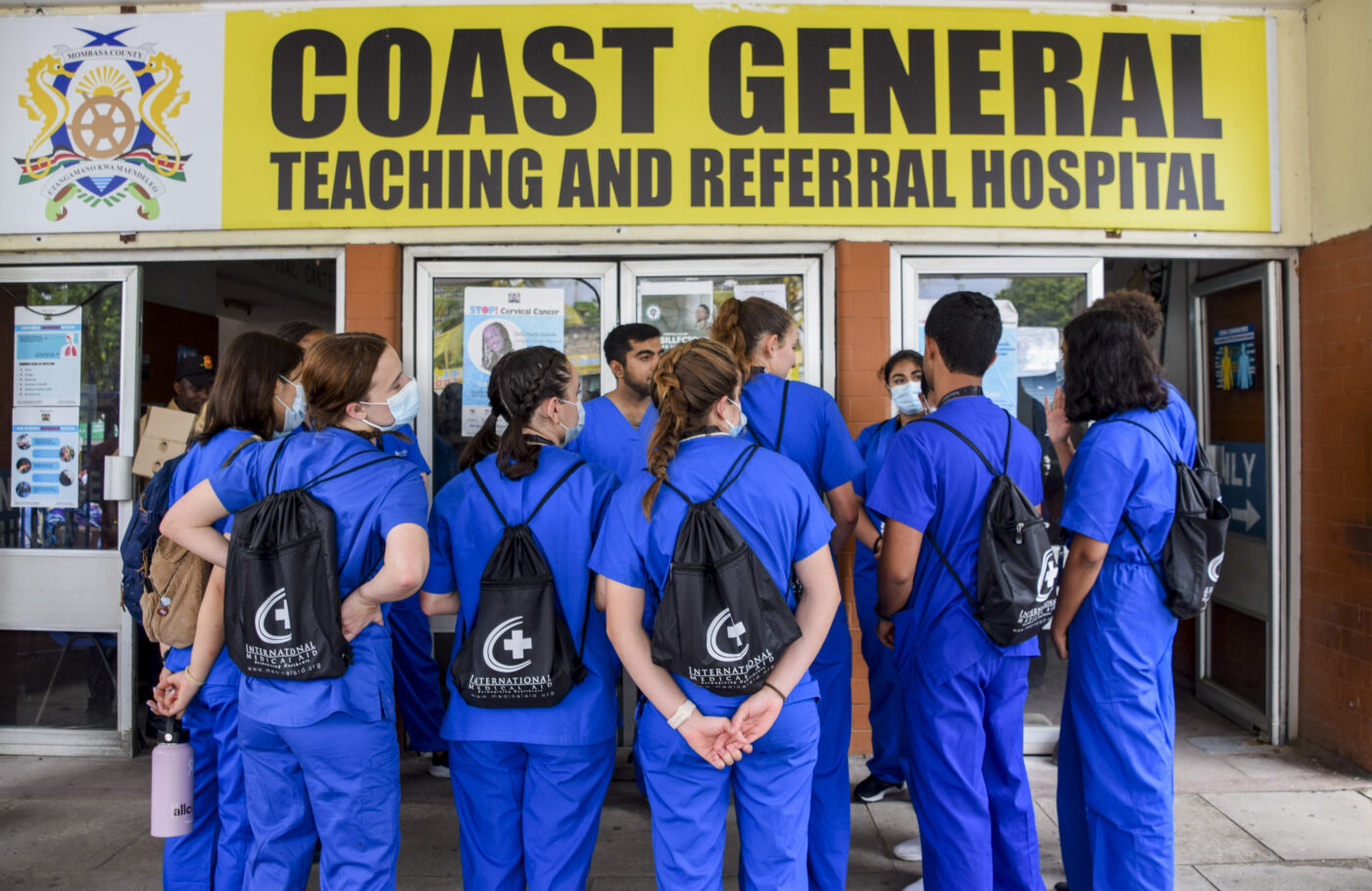Our internships abroad provide a hands-on environment that aligns with the 15 core competencies for success in international medical aid and medical professions more broadly. The program has been meticulously designed to offer experiences that foster growth in these areas. Here’s how:
Ethical Responsibility to Self and Others
International Medical Aid internships are steeped in ethical foundations. Interns get hands-on experience in executing ethical, sustainable community projects organized in long-term partnerships with local communities. This exposes interns to ethical dilemmas and solutions they may not encounter in more structured systems, helping them build a strong ethical compass. Furthermore, these experiences offer insights that can be invaluable in letters of recommendation.
Reliability and Dependability
The program structure allows interns to demonstrate reliability by participating in various activities, from hospital rotations to community outreach lectures. Intern performance in these areas is closely monitored by program staff and vetted by a medical director, who can later vouch for these qualities when providing references or recommendations.
Resilience and Adaptability
Interns face challenging clinical environments that differ considerably from those in more developed countries. These challenges, including cultural differences and possibly even culture shock, provide an ideal training ground for developing resilience. This is a crucial trait that medical schools look for and one that will serve interns well in their future medical careers.
Capacity for Improvement
International Medical Aid internships are structured to include regular feedback cycles from mentors who are well-versed in clinical practice and program objectives. This allows interns to gain insights into their performance, adapt accordingly, and continually improve. The feedback is not just verbal; it can also be documented, providing yet another strong point for future applications to medical or PA schools.
Independent Documentation and Recommendations
One unique feature of the program is the meticulous documentation of each intern’s progress across all competencies. The program offers opportunities for interns to receive letters of recommendation from US-based physician mentors with extensive experience. These recommendations can be extraordinarily impactful when applying to medical schools or PA programs, especially since they come from mentors with decades of experience advising candidates.
International Medical Aid internships offer a comprehensive environment for aspiring medical professionals to grow and excel in all 15 competencies. The experiences gained, and the documentation provided create a robust foundation for anyone aiming to make a meaningful impact in the field of medicine.

15 Core Competencies for Entering Medical Students
If you’re considering a medical career, you must know the 15 Core Competencies for Entering Medical Students. These competencies are not arbitrary guidelines. They are standardized criteria that have received endorsements from authoritative bodies like the AAMC Group on Student Affairs (GSA), Committee on Admissions (COA), and the University of Arkansas for Medical Sciences College of Medicine Admissions Committee.
These competencies emerged from comprehensive research examining medical education and employment literature. They were developed with the contribution of various blue-ribbon and advisory panels, like the Scientific Foundations for Future Physicians (SFFP), Behavioral and Social Sciences Foundations for Future Physicians (BSSFFP), Institute of Medicine (IOM), and the 5th Comprehensive Review of the MCAT® Review Committee (MR5), among others.
These competencies are categorized under four main sections:
Interpersonal Competencies
This category includes skills like Service Orientation, Social Skills, Cultural Competence, Teamwork, and Oral Communication. For instance, Service Orientation involves demonstrating an eagerness to assist others and a sensitivity to their needs. You can read more about pre-med students and core competencies here.
Ethical Competencies
Ethical Responsibility to Self and Others, Reliability and Dependability, Resilience and Adaptability, and Capacity for Improvement. For example, Reliability and Dependability require consistently fulfilling obligations promptly and satisfactorily.
Thinking and Reasoning Competencies
Critical Thinking, Quantitative Reasoning, Scientific Inquiry, and Written Communication are included here. Quantitative Reasoning is about applying mathematical reasoning to describe or explain natural phenomena. Those about to take the AAMC PREview exam might find the competencies particularly useful. More on this can be found in this definitive guide for 2023.
Science Competencies
This category encompasses Living Systems and Human Behavior. Living Systems involves applying knowledge in the natural sciences to address problems related to molecular and macro systems, including biomolecules and cells.
How Medical Aid's Programs Help in Learning Core Competencies
We offer a range of programs that aim to prepare medical students in line with these core competencies. We adopt a multifaceted approach to help you become a well-rounded medical professional. You can see how it works on our website.
Service Orientation
This goes beyond mere kindness. Service orientation in the medical field implies a proactive nature to identify and act on opportunities where one can assist others. It means an innate or cultivated sensitivity to the feelings and needs of other people, even those from diverse backgrounds.
Whether providing medical care in underprivileged areas or helping colleagues with tasks, this attribute is the bedrock of ethical and compassionate medical practice. It involves immediate, person-to-person interactions and an awareness of broader societal needs on local, national, and global scales.
Social Skills
Reading social cues and adjusting behavior accordingly is vital in a healthcare setting. These skills facilitate better communication, foster trust, and can sometimes be as therapeutic as medication. It involves verbal and non-verbal cues, such as tone of voice, body language, and facial expressions. Practicing respectful behavior is a cornerstone in this area, where the objective is professional interaction and emotional support.
Cultural Competence
The ability to understand and appreciate diverse cultures is paramount in international settings. This competence means going beyond tolerance to a place of genuine respect and inclusion. It involves understanding that people from diverse backgrounds have different ways of perceiving the world and requires an active effort to educate oneself about these perspectives. Recognizing one’s own biases is the first step toward eliminating them.
Teamwork
Working in medicine, especially internationally, is never a solitary endeavor. Effective teamwork involves open communication, sharing expertise, and prioritizing collective over individual goals. It means taking constructive criticism well and offering feedback that helps the team improve. The results can be exceptional when each individual contributes to a common goal.
Oral Communication
Clarity and accuracy in conveying information are key, particularly when miscommunication can result in serious consequences. An effective communicator listens well and can identify potential communication hurdles—language barriers, cultural nuances, or emotional states—and adapt accordingly.
Ethical Responsibility to Self and Others
Ethics go beyond knowing what is right or wrong. It involves consistently choosing to do what is right and inspiring others to do the same. Ethical responsibility is crucial, whether it’s about patient confidentiality, honest reporting, or following treatment guidelines.
Reliability and Dependability
Consistency and punctuality are integral here. People need to know that they can count on you in medical emergencies or routine care. Reliability is about doing what you say you’ll do when you say you’ll do it every time.
Resilience and Adaptability
Being able to function effectively under stress or in ever-changing situations is important. This includes maintaining composure, being persistent, and bouncing back from setbacks, common in medical settings.
Capacity for Improvement
The medical field constantly evolves, so a willingness to learn and adapt is essential. This includes setting goals for skill development, reflecting on one’s performance listening to feedback, and making improvements accordingly.
Critical Thinking
Critical thinking in medicine involves a balanced analysis of situations or issues to form a judgment. This is essential for diagnoses, treatment planning, and ethical decision-making.
Quantitative Reasoning
This skill allows for applying mathematical concepts to interpret and manipulate numerical data, crucial for tasks such as medication dosing, interpreting medical data, and conducting research.
Scientific Inquiry
A strong understanding and application of the scientific method are important for effective medical research, interpreting scientific literature, and integrating various types of scientific knowledge.
Written Communication
Like its oral counterpart, written communication is essential for clear, concise documentation, correspondence, and research publication. This skill is key for both patient care and collaborative efforts within the medical community.
Living Systems
A deep understanding of living systems, from molecules to whole organisms, allows medical professionals to apply this knowledge to diagnose illnesses, propose treatments, and understand patient responses to various interventions.
Human Behavior
This involves the application of psychological and sociological principles to understand how individuals behave and make choices. It’s key for understanding patient compliance, effective communication, and the psychosocial aspects of health and disease.
Understanding and excelling in these competencies will undoubtedly make you a well-rounded and effective practitioner in international medical aid.
Developmental Planning Worksheets a Simplified Explanation
Developmental Planning Worksheets are designed to help you self-assess in different skill sets essential for medical school and a subsequent career in healthcare. They allow you to take stock of your current abilities, identify what you need to work on and help you articulate why you are proficient in certain areas. The worksheets serve as a mirror and a roadmap, showing you where you stand now and what steps you could consider taking next.
Six-Step Method for Self-Assessment and Planning
Understanding the Competency
Start by familiarizing yourself with the specific skill or area of knowledge you’re assessing. This helps you know exactly what you’re evaluating.
Where Do You Stand?
The tool lets you categorize yourself in one of three ways:
- Planning: You’re just starting or considering involvement in this area.
- Progressing: You’ve had some exposure but are not quite there yet.
- Demonstrating: You’ve got a good handle on this, with considerable experience.
Getting Started (If You Choose Planning)
This step is about laying out your initial plans for gaining experience in this competency. Draft a strategy that may involve what actions you’ll take next, how long you think it will take, or what resources you might need.
For Those Who've Been Around (Progressing/Demonstrating)
Here you’ll document your existing experience:
- You’ll list what you’ve learned or skills you’ve gained.
- You’ll reflect on what these experiences mean for you.
- You’ll note down how these experiences have fostered your growth.
- You’ll articulate how these experiences have furthered your interest in a healthcare career.
- Lastly, you’ll think about steps to build on what you’ve already learned or experienced.
Talk to an IMA Medical School Application Consultant
After you’ve filled these out, consider sharing them with one of our advisors, who can give you an educated perspective. Our team may offer additional advice or adjustments to your self-assessment and plans.
Keep it Current
Life and plans change, and your self-assessment should too. Periodically revisit and update your worksheets as you gain more experience, so they can serve as an up-to-date reference, especially useful when you’re applying for medical schools or preparing for interviews.
Feel free to use the worksheet as a guideline rather than a strict form to fill out. The objective is for you to understand your readiness and plan your path uniquely.
Examples of Core Competency Self-Assessment Worksheets
Core Competency: Social Skills
Definition: The ability to interact effectively with people, understand social cues, and respond appropriately to various situations.
CURRENT COMPETENCY LEVEL: [Planning / Progressing / Demonstrating]
How I demonstrate(d) this competency:
I volunteered as a team coordinator in community outreach programs,, facilitating group activities and discussions.
Why it’s important:
Effective social skills are essential for establishing and maintaining both personal and professional relationships in any field, including healthcare.
What this says about me:
This shows I can communicate well, work as part of a team, and am adept at understanding the needs and feelings of others.
What I learned or how I grew from this experience:
I’ve gained a greater sense of empathy and improved my ability to collaborate with individuals from diverse backgrounds.
How this prepared me or influenced my interest:
Interacting with a wide range of people has broadened my perspective and reinforced the importance of social skills in healthcare settings.
MY PLAN(S) TO DEVELOP THIS COMPETENCY
Next steps: Take courses in communication and leadership, and seek additional volunteer opportunities where social skills are required.
Timeline: Courses over the next two semesters, volunteer opportunities during breaks and weekends.
Notes: Consult with an academic advisor to identify suitable courses and with community organizations for volunteer roles that will help me improve my social skills.
Preprofessional Competency: Human Behavior
Definition: Applies knowledge of the self, others, and social systems to solve problems related to the psychological, sociocultural, and biological factors that influence health and well-being.
CURRENT COMPETENCY LEVEL: [Planning / Progressing / Demonstrating]
How I demonstrate(d) this competency:
For example, I have volunteered at a mental health facility, assisting therapists in implementing behavioral interventions.
Why it’s important:
Understanding human behavior can be crucial for effective patient interaction and can help in providing tailored care.
What this says about me:
It indicates that I have a balanced view of healthcare, acknowledging not only the physiological but also the psychological aspects of patient care.
What I learned or how I grew from this experience:
I learned the importance of considering each patient’s unique background when developing a treatment plan.
How this prepared me or influenced my interest:
The experience fortified my resolve to approach healthcare from a multi-faceted angle, giving equal importance to both physical and psychological well-being.
MY PLAN(S) TO DEVELOP THIS COMPETENCY
Next steps: Take advanced psychology courses and conduct a research project on the psychological effects of chronic illness.
Timeline: Next two semesters for courses and the following summer for research.
Notes: Speak with an academic advisor about course selection and research opportunities.
Core Competencies: Cultural Competence
CURRENT COMPETENCY LEVEL: DEMONSTRATING
How I demonstrate(d) this competency:
I’ve taken several courses on medical ethics and cultural diversity. I’ve also volunteered in different community settings, addressing a range of healthcare needs across various cultures.
Why it’s important:
Understanding cultural norms and sensitivities is essential for effective communication and treatment in the healthcare setting.
What this says about me:
I am open-minded and committed to fostering an inclusive environment.
What I learned or how I grew from this experience:
I’ve learned to tailor my approach depending on cultural backgrounds, making healthcare more accessible.
How this prepared me or influenced my interest:
My ability to adapt to different cultural settings will be an asset in my medical career.
MY PLAN(S) TO DEVELOP THIS COMPETENCY
Next steps: Engage in research on healthcare disparities.
Timeline: Start within the next six months.
Notes: Possible collaboration with a faculty member who specializes in this area.
Core Competencies: Service Orientation
CURRENT COMPETENCY LEVEL: PROGRESSING
How I demonstrate(d) this competency:
I’ve been volunteering at a local hospital for the past year, assisting the medical staff in basic patient care and organization.
Why it’s important:
Volunteering provides crucial support to healthcare facilities and offers relief to medical professionals. It also fosters empathy and understanding of patients’ needs.
What this says about me:
It reflects my commitment to community service and the well-being of others.
What I learned or how I grew from this experience:
I developed strong interpersonal skills and gained valuable insights into the medical field.
How this prepared me or influenced my interest:
The experience solidified my resolve to pursue a career in medicine and gave me practical exposure to the healthcare environment.
MY PLAN(S) TO DEVELOP THIS COMPETENCY
Next steps: Apply for a more specialized volunteer position.
Timeline: Within the next two months.
Notes: Consult with hospital staff for specialized roles that could benefit from extra help.
Core Competency: Reliability and Dependability
Definition: The quality of consistently fulfilling responsibilities, commitments, and expectations, demonstrating accountability in various situations.
CURRENT COMPETENCY LEVEL: [Planning / Progressing / Demonstrating]
How I demonstrate(d) this competency:
I’ve taken on leadership roles in academic group projects where I was responsible for delegating tasks and ensuring timely completion.
Why it’s important:
Being reliable and dependable is crucial in healthcare settings where many rely on you—from patients to healthcare providers—to meet your commitments effectively.
What this says about me:
The fact that I willingly take on responsibilities and meet them demonstrates that I am both reliable and dependable, qualities that are vital for a medical career.
What I learned or how I grew from this experience:
Through these experiences, I have better understood the importance of time management and the skill of prioritizing tasks to meet deadlines.
How this prepared me or influenced my interest:
Reliability in academic settings serves as practice for the reliability and dependability that will be expected of me in a medical career.
MY PLAN(S) TO DEVELOP THIS COMPETENCY
Next steps: Engage in healthcare volunteer opportunities that require a high degree of reliability and also take up additional responsibilities in community or academic projects.
Timeline: Ongoing throughout the next academic year.
Notes: Speak with an academic advisor about potential healthcare volunteer opportunities. Make sure to organize my schedule effectively to meet all commitments without compromising on quality.

A Journey of Skills Development - Emily's Experience with International Medical Aid (IMA)
Meet Emily, an aspiring medical student who decided to participate in International Medical Aid’s programs to strengthen her portfolio and deepen her understanding of medical practice. Emily initially struggled with Cultural Competence, but her involvement in IMA’s community outreach initiatives offered her valuable exposure.
Working in underprivileged areas, Emily interacted with various communities, enriching her understanding of the importance of cultural awareness in healthcare delivery. Her experience helped her see how crucial this competency is, something she was less aware of before participating in the program.
Emily’s participation in IMA’s internship abroad also significantly refined her Scientific Inquiry skills. She gained practical experience in problem-solving, forming questions, and crafting hypotheses, key scientific investigation aspects. With each milestone in the program, Emily mastered individual competencies and grew more confident about her commitment to a medical career.
Emily’s experience shares similarities with Bridger Rodonis’s journey, as highlighted in this AAMC feature. Just as Bridger used his football background as a stepping stone to prepare for medical school, Emily drew on her experiences in IMA’s programs to develop the core competencies necessary for aspiring medical students.
Thanks to IMA’s thorough approach, which addresses the 15 core competencies for Entering Medical Students, Emily emerged more prepared for the rigors of medical school. She became a well-rounded candidate, like our other alumni, possessing a blend of skills and attributes vital for success in the medical field.
98% of IMA Alumni Report Progression on the AAMC Core Competences After Engaging with Our Programs
Focusing on the 15 Core Competencies is critical to preparing for medical school. Whether you partner with organizations like International Medical Aid to strengthen your competencies or employ different strategies, these skills will be foundational to your medical career.
By offering internships abroad and medical school admissions consulting, IMA serves as a multi-faceted resource for aspiring medical professionals like Emily, equipping them with the practical experience and strategic guidance necessary for success in medical school applications and beyond.



